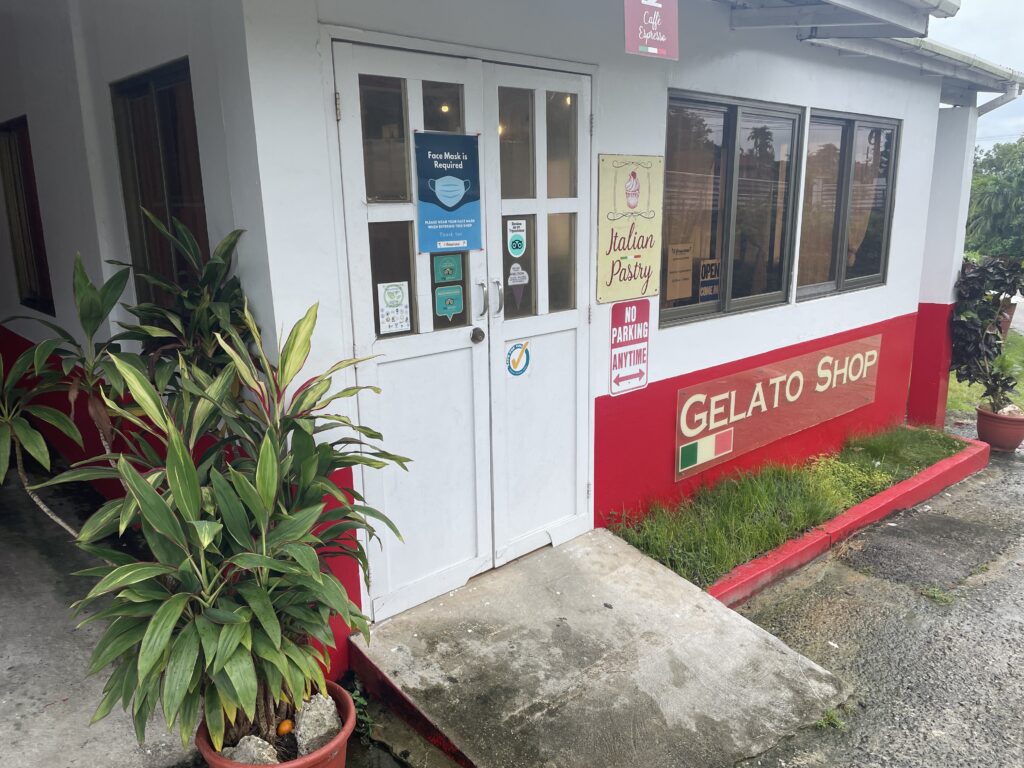Our morning began slowly, with a 9am meeting to discuss different graduate school and career options. We discussed the differences between thesis based and Professional Science Master’s programs and associated career trajectories. Scott, Damien, and Bryan spoke about the pros and cons of getting a Master’s degree directly after graduating with a Bachelors, and encouraged us all to go into a graduate program with a clear idea of what we want, to take our time deciding, or even consider alternative routes of career success through work experience. This was extremely valuable to all of the students in various stages of their lives and education.
To fill time until our next meeting, we decided we would visit the Etpison museum. Unfortunately, it was closed. Then, we improvised a trip to a local artist, Ling Inabo, who is famous for his story boards. Unfortunately, that was also closed, so we had another change of plans. Afterwards, we quickly decided to splurge at, L’Amarena, a local Italian owned gelato shop.

After sugar rushes and a slow morning, we returned to Yogi’s to rest and relax.
In the early afternoon, Amy Lee, from Reef Environmental Education Foundation (REEF) came to visit us at the BnB and talk about her program based in Key Largo, Florida. REEF is a non-profit that promotes citizen science and education related to conservation and biodiversity in marine ecosystems. Anne discussed the scope and techniques for their research. It is volunteer based, many of which are self proclaimed “fish nerds”. The volunteers are taught to identify region specific fishes before diving with a waterproof clip board that they use to document their findings. Divers mark what species they observe and designate their viewings as few, some, many, or abundant. Divers can increase in rank dependent on how many dives they’ve done through the REEF program. Over 225,000 surveys have been completed since the program started in 1993. There is a public database that provides valuable data to scientists and the general public. This research contributes to understanding species declines, the presence of invasive species, and even species discoveries.

REEF checks the data by comparing divers’ findings with the statistical norms for that region. By following up with divers who have observed species that are out of the ordinary for the location, they verify they were not confused with another species and that the diver is truly confident in their viewing.
REEF has been a highly successful program that has been involved in volunteer research, competitive invasive lionfish hunting, marine education for children, internships and graduate research, and much more.

After a few more hours of R&R, we left for Drop Off, a local bar and grill for our final organized meal together. We reunited with Ann Singeo to discuss the remainder of our adventures in Palau, exchange contact information, and say our final goodbyes before returning for the USA.

